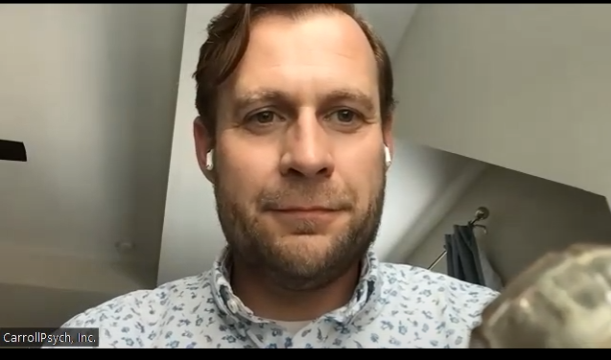The compliment came from a woman in her 60s, who was near the end of her career. I was still in my 30s: “Bryan you are the best boss I have ever had.”
I thanked her, but, quite frankly, I could not understand how someone with such a long career could say that to me. Why?
She was not the first person, nor the last, to tell me the same thing. Clearly, I was doing something right, but what is it?
I spent some time in reflection, reviewing all the best practices I try to use, many of which I have talked about in these articles. These heartfelt statements from staff went deeper than appreciation for good communication. As usual my analytical mind focused on technique, and the search continued.
Finally, a good friend and co-worker gave me a simple answer. “Bryan, you actually care.”
In its original form, passion meant to suffer. Compassion then is suffering with another. What my friend explained to me is that I am genuinely interested in employees, their challenges, their needs and their goals. I just thought this was part of being human. I had not thought about it as part of leading others. Yet, it is fundamental for my entire approach to leadership.
It is a truism in therapy that clients will pick up on the inauthentic therapist. This is also true for leaders; your direct reports will know if you do not care.
A couple examples of this from my own experience:
- As CEO, I had a weekly meeting of my directors. I set the start time at 9am. My preference would have been 8, because I was in the office by 7:15 every day. Still, I had two staffers, who drove long distances to get to work, and usually came late and stayed late; this small thing created dividends for my relationships with them, as well as the functioning of the whole team.
- I insisted that an employee go home when she was confronted with a personal emergency. She wanted to stay out of a sense of duty, but I convinced her it was the right thing to do. When she returned, she was more deeply engaged and worked even harder.
Compassion does not mean being soft or enabling. The success of the business or the institution, and thus the future of all employees, comes first.
There are times when people are unable to do their jobs and they are struggling and miserable and unable to make a change. Keeping them on is not helping them or the company. More than once, I have seen the relief of someone overwhelmed by work when I forced them to make a change. That, too, can be a form of compassion.
Slowing down and remembering that as a leader you are dealing with human beings, who have their own hopes, dreams, fears and needs is a key to compassion. Each is living a personal story, which is just as important as yours. You may have an important position with prestige, power and other rewards, a position you have earned through years of education and hard work. But none of that makes you more important than the people you lead. Indeed, all of that adds to your responsibility to them.
If you want to be the best leader you can be, you must lead with compassion. It is the only way you can fully invest in your people. Do it, and they will follow you anywhere.
Bryan G. Stephens is a former executive on a mission to transform the workplace. He is the founder and CEO of TalkForward, a consulting and training company, utilizing Bryan’s clinical and management expertise to develop managers and teams in a corporate environment. As a licensed therapist with strong understanding of developing human potential, he is dedicated to the development of Human Capital to meet the needs of leaders, managers, and employees in the 21st Century workplace.
Bryan has an Executive MBA from Kennesaw State University, Coles School of Business, and both a Master’s and Bachelor’s degree in Psychology.






